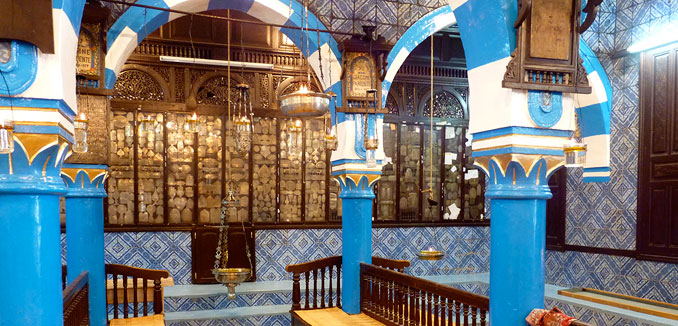Despite protests from dozens of lawmakers, Tunisia’s Interim Prime Minister Mehdi Jomaa decided to allow Israeli tourists to visit the North African country even though there are have been no diplomatic relations with Israel since 2000.
“There is a decision to allow Israeli tourists into Tunisia,” Jomaa said at an economic conference in Tunis. “The aim is that the tourist season be a success,” he said.
On hearing news of the move, some 80 lawmakers called for a special hearing during which they would quiz Tourism Minister Amal Kirbul and Interior Minister Rida Separ.
One of Tunisia’s main tourist sites is the synagogue on the isle of Djerba, which some claim dates back 2,500 years and hosts an annual springtime pilgrimage on the Jewish holiday of Lag Ba’Omer.
The site witnessed a major terror attack in recent times as well as at least one additional anti-Semitic incident. Al-Qaeda targeted tourists at the synagogue in 2002. Five people were killed when a truck bomb crashed into a perimeter wall. Earlier this month a man was arrested for allegedly stabbing a middle-aged member of Djerba’s Jewish community.
The issue of Israeli tourists being refused entry into Tunisia made the headlines in March when passengers carrying the blue passports of Israel on board the cruise ship Norwegian Jade were barred from disembarking at Tunis.
While Tunisia is hardly Western in terms of its freedoms, the current post-Arab-Spring prime minister is trying to push an agenda he and his ministers dub “startup democracy.” He outlined his vision during a recent visit to Washington.
My job is to support and finalize this last step of the transition with transparent and fair elections. . . . We have an independent electoral commission which will set the date for the elections. We will do our best to have elections before the end of the year…
In the past few years, we didn’t progress a lot on the reforms. The economy was forgotten. The economic model was not good, and we have to change it. One of the most important difficulties is the imbalance between the inland and the coast. We have to push inland development more. We want to push new technologies. We are also looking for a free-trade agreement with the United States…
We hope to be one of the best countries practicing democracy.
[Photo: Djerba Synagogue – Bellyglad / Wiki Commons]




